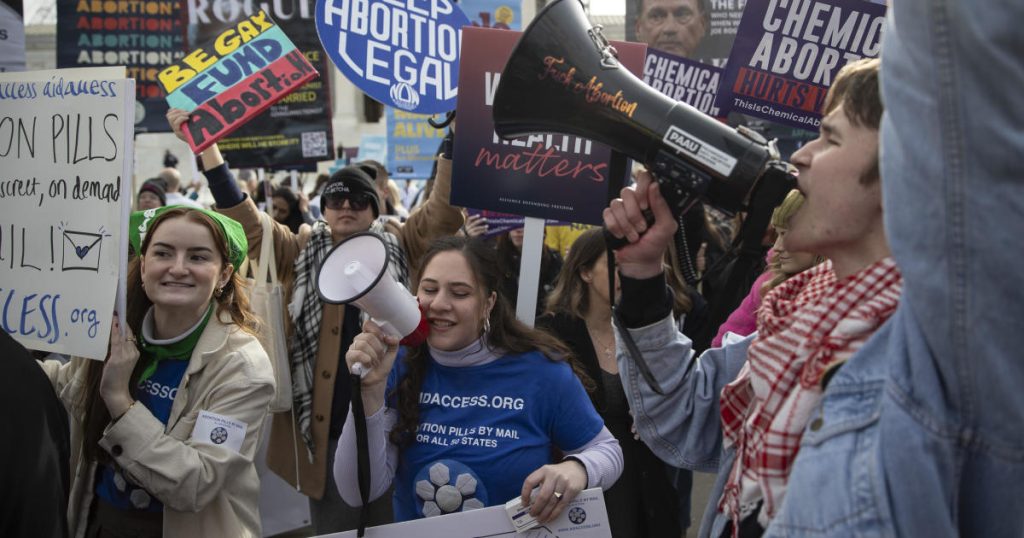The Supreme Court rejected a challenge against the availability of the abortion pill mifepristone on procedural grounds, finding that the group of anti-abortion rights doctors and medical associations lacked the legal right to sue the FDA. This ruling preserved access to the drug, which had been made easier to obtain through FDA actions in 2016 and 2021. The decision does not prevent other challenges against mifepristone, but for now, the FDA’s recent actions remain in place, allowing broader access to the drug.
The case was the first major abortion-related challenge heard by the Supreme Court since the overturning of Roe v. Wade. Mifepristone is commonly used with a second drug, misoprostol, for medication abortions. The FDA approved mifepristone in 2000, and its recent changes allowed for extended use and easier access to the drug. The lawsuit against the FDA alleged that the agency did not have the authority to approve the drug and did not adequately assess its safety and effectiveness. However, the Supreme Court’s decision upheld the FDA’s actions and maintained access to mifepristone.
The ruling by the Supreme Court addressed concerns raised by anti-abortion rights doctors and groups about the use of mifepristone, but found that they did not have the legal standing to sue. The court emphasized that the plaintiffs can express their concerns through regulatory, legislative, and political channels, but federal courts are not the appropriate venue for their grievances. The court also emphasized that medical providers are protected against being required to provide treatments that go against their conscience, which further weakened the plaintiffs’ argument.
President Biden’s administration has taken steps to expand access to medication abortion since the overturning of Roe v. Wade, with more pharmacies allowed to dispense abortion pills. However, efforts by anti-abortion rights groups and lawmakers to restrict access to mifepristone have continued. The Supreme Court’s ruling in favor of maintaining access to the drug was welcomed by the drug manufacturer, as it ensured the stability of the FDA drug approval process and reaffirmed basic principles of administrative law.
Overall, the Supreme Court’s decision in the abortion pill case upheld the FDA’s actions to increase access to mifepristone, despite challenges from anti-abortion rights doctors and medical associations. The ruling emphasized the importance of legal standing in bringing lawsuits, as well as the role of regulatory and legislative processes in addressing concerns related to drug approvals. The decision marked a significant development in the ongoing debate over reproductive rights and access to abortion medication in the United States.


